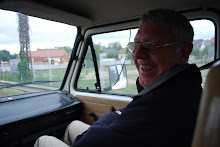Hungarians, also known as Magyars, are the group of inhabitants who are established in Hungary. But, as we have learned, living in Hungary is not the sole restriction in terms of being considered a true Hungarian. The Treaty of Trianon in 1920 divided Hungary into its present state which left some true Hungarians in close knit pockets of the surrounding countries. There are also Hungarians living in other parts of the world such as the United States which about 1.4 million Hungarian people choose to call their home. So, if there are Hungarians living outside of Hungary, what makes for a true Hungarian?
The Hungarian Language is large part of a true Hungarian person because it provides a common origin to those living in Hungary, or living in those Hungarian pockets elsewhere in the world. It is a linguistic unification. Hungarians are proud of their roots and traditions and the older generation very much so adheres to them consistently. Rather than the government or the Hungarian national border determining who is Hungarian, it is the ethnicity and cultural heritage which brings them back to the roots of who they truly are. Several traditions which are important to Hungarian history and culture are music, folkdance, ceramics, rich foods and of course, as we have learned on our excursions, an abundance of alcohol, especially palinka.
Every time that we go on our adventures with Janos and Robbie, I am always amazed by the communities of Hungarian people that we interact with and who are so close knit and so closely related to the people that we are coexisting with in Budapest. One main thing that stuck out to me when we were travelling through Ukraine was when we stopped at the secondary school in one of the Hungarian towns where we also went to the markets and hung out in the city center. Robbie was telling me that in the town if you look closely and pay attention to the clocks you can notice a small difference. The time on all the clocks was one hour behind the actual time in Ukraine because the town was made up of all Hungarians and therefore they followed Hungarian time because everything that they cared about such as their family back in Hungary, television shows, etc. were regulated by Hungarian time. And again the palinka form the gypsy minister confirmed the fact that true Hungarians enjoy some palinka, even if it tastes like rubbing alcohol.
Jordan Weaver
Wednesday, November 19, 2008
Subscribe to:
Post Comments (Atom)

No comments:
Post a Comment